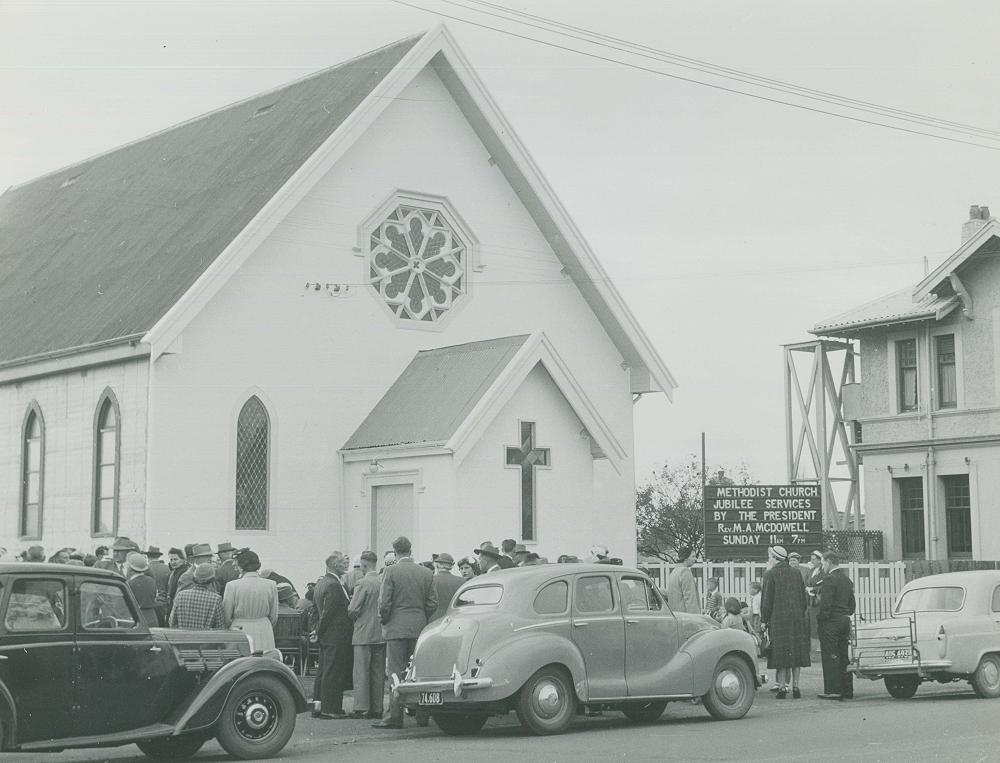
He Never Courted Popularity
Fred Prosser 1883-1963
We are constantly reminded of the dangers of coal-mining. The Pike River tragedy, which is still to be settled, is just one of many in this country’s history. Over 200 men have lost their lives over a period of 150 years in the nearly 10 major events. That figure must be considerably higher when the regular losses of individuals in mine accidents are considered. Coal has been a necessary part of human civilisation for millennia and from the moment it became necessary to dig holes in the ground, human lives have been at stake.
The need for experienced miners in New Zealand goes back to the 1840s and became acute when gold was discovered in Central Otago and the Coromandel. An examination of the antecedents of Methodist ministers has, for this writer, thrown up an astonishing proportion of former miners or members of miners’ families. Approximately 60 ministers had fathers who were miners and over 20 had been miners before entering the ministry. This article is about Fred Prosser, a Welsh miner who came to New Zealand in May exactly 100 years ago, and who spent over 20 years in circuit ministry.
Fred was not quite 40 when he came out, with his wife Miriam and family. They went to Millerton north of Westport. Millerton now has a population of approximately 30-40 and is classified - like neighbouring Denniston - as a ghost town but it was a big operation then. The mine began production in 1896 and closed in the late 1960s. Millerton and Denniston mines were substantial by New Zealand standards. Fred stayed for only four years but was well remembered and had started to move up the ranks of the Miners’ Union when he answered the call to enter the ministry. He had been a Primitive Methodist local preacher in Abergavenny from 1908.
Fred had also held important executive positions in the Independent Labour Party in the UK and he always identified himself as a Christian Socialist in New Zealand. At Millerton there was a Socialist Party branch - they had organised a protest march in support of their Waihi brother-miners when the latter were engaged in their notorious lock-out in 1912. It’s hard to imagine that Fred was not aware of this history and was not of the same mind as many of his new workmates. Nevertheless, he felt that call to ministry more strongly now and it is of significance that his first appointment as home missionary was to Riverton – heartland of the Western Southland coal-mining industry.
Fred was to spend eight years there – an almost unheard-of term for a home missionary. He must have been regarded by the Church as the right man for that area. He then continued as a home missionary at Island Bay and Geraldine and was president of the Home Missionaries’ Association. At the 1943 Conference he was received into full connexion. He remained at Geraldine for two years and completed his ordained ministry at Woolston in 1948 as a response to ill-health.
It is worth setting down a part of the tribute published at the time of his death. “Fred Prosser never courted popularity. As a Christian Socialist all his years, and as a Christian Pacifist over the period of two world wars, his uncompromising and strongly expressed views brought him into disagreement with many. His convictions however, whether in politics or in Church affairs, always arose out of a sincere and earnest desire to find practical expression to his deep faith in Jesus Christ. He had the courage to stand for his convictions, alone if need be.” The Christian faith in 2022 needs, as never before, this sort of witness.
In retirement Fred and Miriam continued to live in Christchurch where he actively supported the Sumner congregation. He died there in his 80th year.
